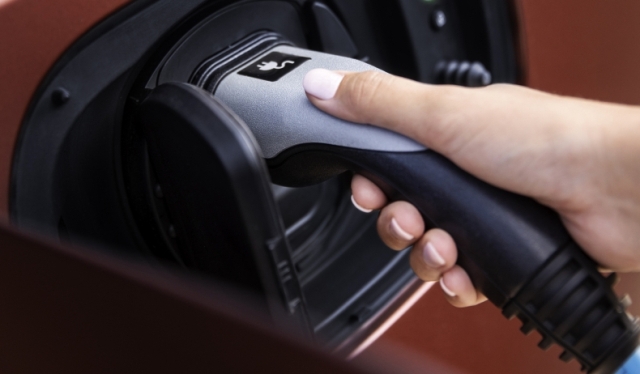Jaguar Land Rover (JLR), the British luxury carmaker, has announced a £500 million ($669.6 million) investment to support the parallel production of electric vehicles (EVs) at its Halewood facility. This investment is a significant part of the company’s strategy to accelerate electrification across its brand portfolio.
JLR has committed to investing £18 billion in electric vehicles by 2028, with plans to introduce a new electric Jaguar by 2025. The investment also aligns with the automaker’s “Reimagine” strategy, which aims to electrify all JLR brands by 2030 and achieve carbon net zero across its supply chain, products, and operations by 2039, Reuters news report said.
“Halewood will be our first all-electric production facility,” said Barbara Bergmeier, JLR’s Executive Director of Industrial Operations.
In addition, JLR has already invested £250 million to transform its Merseyside site for the production of medium-sized electric luxury SUVs. The Halewood plant now boasts new EV build lines, 750 autonomous robots, and advanced cloud-based management systems.
JLR’s investments signal its commitment to driving innovation and sustainability in the luxury automotive sector.
JLR is implementing a multi-faceted approach to reduce emissions across its operations, products, and supply chain as part of its broader sustainability initiatives. Here are the key strategies JLR is employing to cut down emissions:
- Electrification of Vehicles
Reimagine Strategy: JLR’s “Reimagine” strategy, announced in 2021, focuses on transitioning its entire vehicle lineup to electric. By 2030, all Jaguar and Land Rover models are expected to offer fully electric variants, with Jaguar becoming an all-electric brand by 2025.
Investment in EVs: The company is investing £18 billion by 2028 to develop electric vehicles (EVs) and related technologies. This includes the production of electric versions of its popular SUVs at facilities like Halewood, which will be its first all-electric production plant.
- Net Zero Carbon Target by 2039
JLR aims to achieve carbon net zero across its supply chain, products, and operations by 2039. This goal involves reducing emissions from manufacturing processes, logistics, and vehicle emissions during the use phase of their products.
Supply Chain Improvements: The company is working with suppliers to reduce emissions throughout the production process, including sourcing sustainable materials and using more efficient manufacturing techniques.
- Sustainable Materials
JLR is incorporating recycled and sustainable materials into its vehicles. For example, it uses sustainable materials like recycled aluminum and natural fibers in its interiors. These initiatives help reduce the carbon footprint of vehicle production.
- Decarbonizing Manufacturing Operations
JLR has invested heavily in upgrading its manufacturing plants to be more energy-efficient. For example, the Halewood plant features cloud-based management systems and 750 autonomous robots to optimize production efficiency.
JLR also aims to switch its manufacturing sites to use renewable energy and more sustainable practices to reduce emissions at the factory level.
- Vehicle Lifecycle Management
The company is focusing on the entire vehicle lifecycle, from design to disposal. This includes improving the efficiency and longevity of its electric vehicles, enhancing recyclability, and reducing emissions associated with the end of vehicle life.
- Partnerships and Collaborations
JLR collaborates with industry partners and governments to accelerate research into zero-emission technologies such as hydrogen fuel cells, which could complement its electric vehicle lineup, especially for longer-range and heavy-duty vehicles.

